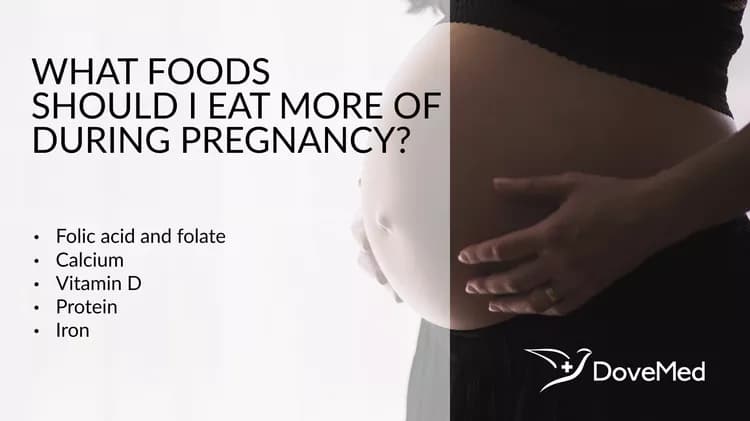During pregnancy, it is always not necessary to eat a specially-prepared diet. The basic tenets of healthy eating remain the same, which include whole grains, lean proteins, fruits, healthy fat, and vegetables. However, a few nutrients should be consumed in additional amounts to promote the growth and development of the fetus. According to a study published in the journal Pediatrics, caloric supplementation during pregnancy was found to be associated with an increase in birth weight.
Folic acid and folate:
Folate refers to a B-vitamin that prevents abnormalities of the brain and spinal cord, collectively known as neural tube defects. In supplements and fortified foods, the synthetic form of folate is used, which is known as folic acid. Consumption of more folic acid during pregnancy is associated with lowered risks of preterm delivery. During pregnancy, 800 micrograms of folic acid is needed per day.
A study published in Diabetologia in 2007 reported that it is rare to find folate deficiency among women during pregnancy indicating a good level of awareness. A deficiency of folate leads to increased risk of adiposity and insulin resistance in the baby. Folic acid is found in fortified cereals, citrus fruits, peas, beans, and leafy green vegetables. 15-60 grams of fortified cereals contains 100-700 micrograms of folate, while 95 grams of boiled spinach contains 115 micrograms of folate.
Calcium:
Calcium is required for strong bones and teeth. It also promotes normal functioning of muscular, circulatory, and nervous systems. Pregnant women need 1,000 milligrams of calcium per day. Rich sources of calcium are dairy products, broccoli, kale, breakfast cereals, and fruit juices. 237 milliliters of milk contains 299 milligrams of calcium, whereas 170 grams of low-fat yogurt contains 235 milligrams of calcium.
Vitamin D:
Vitamin D promotes strong bones and teeth. During pregnancy, 600 international units (IU) of vitamin D are required per day. Vitamin D is found in plenty in orange juice, fortified milk, and fatty fish like salmon. 85 grams of salmon contains 447 IU of vitamin D, while 237 milliliters of milk contains 115 IU of vitamin D.
Protein:
A crucial nutrient for the growth of the fetus, especially during the second and third trimesters, protein should be consumed in a quantity of 71 grams per day by pregnant women. Good sources of protein are fish, lean meat, eggs, and poultry. Peanut butter, dairy products, dried beans, peas, and tofu also contain protein. 226 grams of cottage cheese contains 28 grams of protein, whereas 86 grams of chicken breast contains 26 grams of protein.
Iron:
Consumption of iron helps prevent anemia. During pregnancy, the need for iron doubles because one’s blood volume expands to meet the needs of the body as well as the fetus. Insufficient intake of iron can cause fatigue and recurrent infections. It can also raise the risk of preterm delivery and low birth weight. Rich sources of iron are poultry, lean meat, and fish. Beans, fortified breakfast cereals, and vegetables also contain iron. 95 grams of boiled spinach contains 1.9 milligrams of iron, whereas 15-60 grams of fortified cereal contains 29.7 milligrams of iron.
Despite eating a healthy diet, pregnant women may lose out on essential nutrients. For this reason, it is advised that they should take proper supplements every day. Ideally, these should be started 3 months before conception, but under the advice of a healthcare professional only. It is also recommended that a physician be consulted before starting on any sort of special diet or herbal supplement.
Related Articles
Test Your Knowledge
Asked by users
Related Centers
Related Specialties
Related Physicians
Related Procedures
Related Resources
Join DoveHubs
and connect with fellow professionals


0 Comments
Please log in to post a comment.